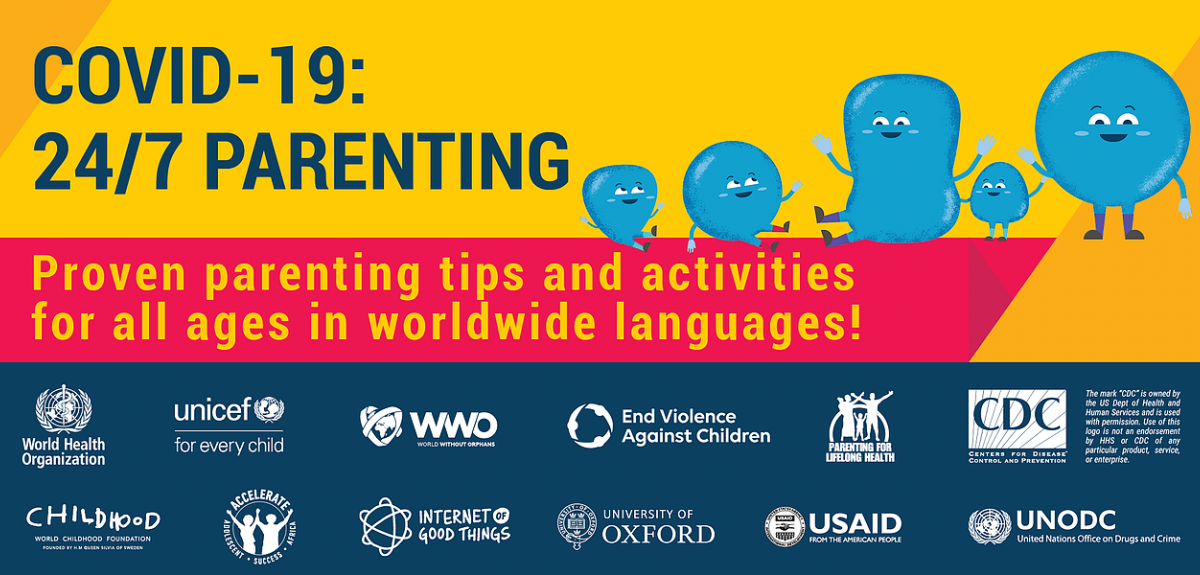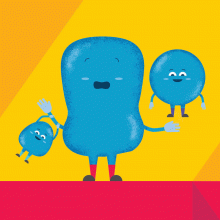
58 million downloads and counting: Oxford's COVID-19 parenting advice
It was 5am in mid-March, and Lucie Cluver was awake. For once, it was not the children bouncing on the bed that had woken her. She could not sleep because of the pandemic. But it was not the crazy COVID dreams that have affected others. Lucie had woken early because she feared the pandemic was going to be a nightmare - for her and for millions of other parents around the world. The nursery school was closing at the end of the week, along with just about every other educational establishment on the planet, what on Earth were parents going to do?
It was 5am in mid-March, and Lucie Cluver was awake. For once, it was not the children bouncing on the bed...The nursery school was closing at the end of the week, along with just about every other educational establishment on the planet, what on Earth were parents going to do?
Happily, Lucie Cluver, who is Professor of Child and Family Social Work at Oxford’s Department of Social Policy and Intervention, decided to do something about it. That early morning start inspired what has gone on to be an incredible international campaign in the midst of the coronavirus pandemic. It has touched every corner of the world – and 58 million families have used the work that began at 5am that day in March.
What was keeping her awake was not just personal. From the evidence and her time as a social worker, Professor Cluver knew that every time schools close and movement is restricted, families have suffered. ‘Rates of abuse always rise’.
It is really hard for families already under stress, through illness, or poverty or mental health distress. But, suddenly, COVID-19 meant those challenges were going to be almost universal. Everyone is worried, stressed about money and at times just totally fed up with being restricted. Most shouting and hitting is not done by malicious parents, but by stressed, exhausted parents at the end of their tether.
It was very clear we were heading into a perfect storm
‘It was very clear we were heading into a perfect storm,’ she says.
Professor Cluver started writing emails. That morning, she and her colleague, Dr Jamie Lachman, contacted the World Health Organisation, UNICEF, the Global Partnership to End Violence against Children, UNODC, USAID and the Centers for Disease Control.
They knew they needed to move fast - the need was urgent and demand would be immense. Together, they began creating simple, but effective, resources to support parents during lockdown. A decade of research into parenting and child care was about to come in very useful.

Normally, it would take about two years to get endorsement and collaboration from this range of international agencies. In recognition of the global crisis, though, colleagues came together and fast-tracked approval. This was made possible because of many randomised controlled studies which show that parenting programmes work to reduce parenting stress, depression, child behaviour problems and violence at home.
Thanks to the almost unprecedented level of global cooperation, the resources created by the Oxford team was reviewed, edited and approved in just a week by UN agencies, and then taken up by hundreds of other NGOs and international agencies. They included tips about how to maintain positive relationships with children through one-to-one time, ways to keep them safe and healthy during COVID-19 and to support positive child behaviour and manage difficult behaviours, and also to manage stress and anger during lockdown. Those resources were put on the WHO and the UNICEF websites and have been taken up, translated and adapted in 180 countries.
Thanks to the almost unprecedented level of global cooperation, the resources created by the Oxford team was reviewed, edited and approved in just a week by UN agencies...They included tips about how to maintain positive relationships with children...ways to keep them safe and healthy during COVID-19 and...to manage stress and anger during lockdown. Those resources were put on the WHO and the UNICEF websites and have been taken up...in 180 countries
UNICEF has called this time ‘a crisis of childcare’. Children around the world have been taken out of their routines and put at home, away from school, friends and extended family. Parents are struggling to work at home and look after children, or have lost their jobs, do not have the support of grandparents, teachers and care-givers.
‘Parents and caregivers of children are the hidden heroes of this pandemic,’ says Dr Lachman. ‘Research is showing just how stressful COVID-19 is for them. The need for parenting support is universal.’
The international collaboration, which began that day in March, has proved successful well beyond the nightmares.
‘We have been amazed, the response has been phenomenal,’ says Professor Cluver. ‘The creative ingenuity of everyone has been incredible.’
The project has shown an unprecedented global alliance to support parents. Twenty-five governments globally have used the resources as part of their national COVID response. ‘Part of this is because the materials were all made open-source and adaptable,’ explains Dr Lachman. ‘We encourage innovation and just ask everyone to keep the evidence intact.’

The parenting resources have been adapted for television and radio in Lao, parenting hotlines in Paraguay, and animated as cartoons in Kyrgyzstan. They have been broadcast through community loudspeakers to reach hundreds of thousands of people in rural villages across Africa and Asia. The advice has been adapted for use as scripts for social workers and front-line community volunteers in Eastern Europe and Central Africa, handed out with food parcels in Montenegro, South Africa, and the Philippines and they have inspired a phone-based parenting course in India, which has gone global.
Religious leaders have taken initiative, from churches in Sudan to Buddhist monks in Cambodia and inter-faith groups in Sri Lanka. A pastor in Malawi has been discussing each tip sheet on national radio to more than two million listeners each week.
They were explained on national TV news by a senior academic in Pakistan, handed out in printed booklets to 281,000 people in Sri Lanka, and shared with 19,000 North Macedonians through Facebook. There is even a parenting song, written by a Broadway musical director. Professor Cluver realised it had gone everywhere when she received her own advice through the door in Oxfordshire, courtesy of her local authority.
‘We were able to kick-start this effort, but we had no money to continue it,’ says Professor Cluver. ‘Oxford’s COVID-19 response fund was amazing, in providing early and swift funding. Then, other funders came forward, including the Lego and Oak Foundations, which both wanted to help. We’ve been lucky to get UKRI Global Challenges Research Fund/Newton Fund support for low and middle income countries, and this means we can really now focus on the next stage.’
This next stage involves making resources that can provide parents with direct and personalised support.
‘We now know that COVID is not going away anytime soon,’ says Dr Lachman. ‘Before it was like we were sewing the parachute while in freefall. But now we can be more strategic, so the resources can have more impact on the lives of millions of parents and their children.’
The team is launching a global free text message system with UNICEF that is responsive to parents’ individual needs with specific support for those with babies, young children and teenagers. It can be accessed through WhatsApp, Facebook Messenger or through text messages, if you have a basic handset. It will also include audio-visual versions, for those who have difficulty reading, as well as live recorded videos, with real parents demonstrating key tips. Seven countries have come forward to pilot the system, which will be up and running by September and available globally in October.
The team is also about to release an offline-first App, through which people can access COVID-19 parenting advice, even if they are far from WiFi and cannot afford data.
‘Parents need to know that they are stars,’ says Professor Cluver. ‘Even on those days when it feels like a complete disaster. But they’re not alone.’
Parenting resources in 104 languages: www.covid19parenting.com
WHO website (5 UN languages): https://who.canto.global/s/OMTT2?viewIndex=0
UNICEF website: https://www.unicef.org/coronavirus/covid-19-parenting-tips